All fruits are nutritionally dense and beneficial to your health. However, some are lower than others if you’re managing your carbs.
Fruit frequently gets a poor name since it is sweet and high in carbohydrates. However, nature’s sweets contain more than simply carbohydrates in the form of natural sugar. Fruits include vital vitamins, minerals, and fiber. Fiber slows sugar absorption into your system, making you less likely to suffer blood sugar spikes and lows. Furthermore, consuming fruit is related to a decreased incidence of diabetes. If you’re managing your carb consumption, you might wonder which fruits are low in carbohydrates. Here, we rank fruits depending on their carbohydrate content.
How Many Carbs Are in Your Fruit?
We’ve rated these common fruits based on their suggested serving size. Still, we’ve also included information on how many carbohydrates are in 100 grams of fruit (approximately 3.5 ounces) to help you compare apples to oranges. The fruits are listed from lowest to highest carbohydrate content.
1. Watermelon
Watermelon is one of the lowest-carb fruits on this list, making it ideal for hot summer days. It can help you stay hydrated and is high in vitamin C. You may be shocked that watermelon has more beta carotene than berries; this pigment makes the melon red.
Recipe to try: Watermelon Fruit Pizza
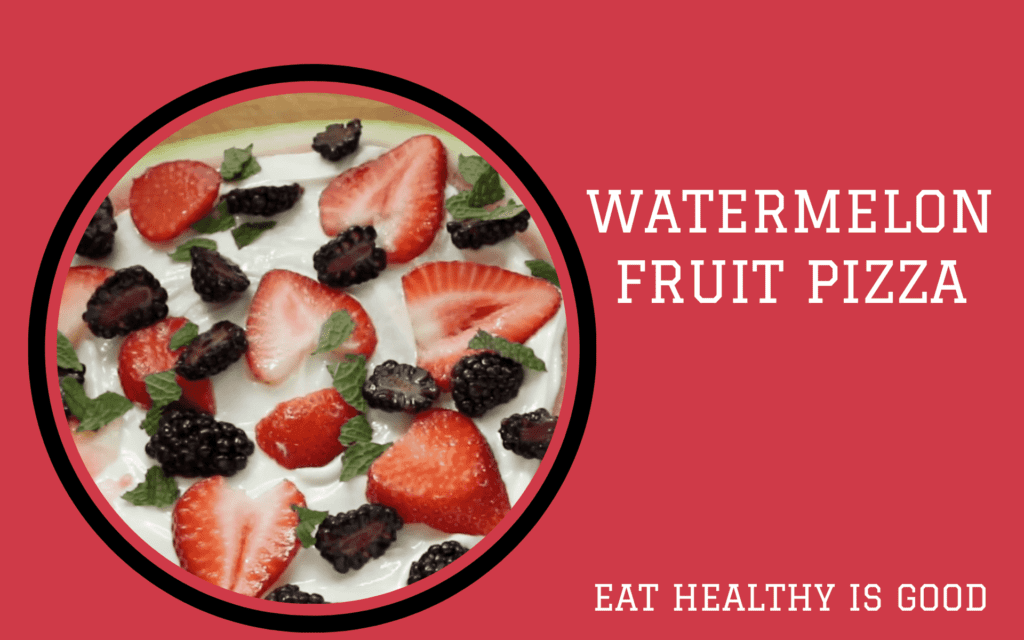
This delightful fruit dessert pizza dish replaces the traditional cookie crust with a healthier watermelon dough. This refreshing dessert, topped with yogurt sauce, your favorite berries, and mint, maybe quadrupled for a party or half for everyday use.
Ingredients
- 1/2 cup low-fat plain yogurt
- One teaspoon honey
- 1/4 teaspoon vanilla extract
- Two Large round slices of watermelon (about one inch thick), cut from the center of the melon
- 2/3 cup sliced strawberries
- 1/2 cup halved blackberries
- Two tablespoons torn fresh mint leaves
Directions
- In a small dish, combine yogurt, honey, and vanilla.
- Spread 1/4 cup yogurt mixture on each slice of watermelon. Cut each slice into eight wedges. Top with strawberries, blackberries, and mint.
Nutrition Facts (per serving)
- Calories: 64
- Fat: 1g
- Carbs: 15g
- Protein: 2g
- One cup chopped watermelon: 11 g carbs, 46 calories.
- 100 g: 8 g carbs, 30 calories.
2. Strawberries
Strawberries are low in carbohydrates, yet they contain 163% of your daily vitamin C needs. Research shows they can boost heart health while stabilizing blood sugar levels. Discover our 18 Best New Strawberry Recipes here.
Recipe to try: Strawberry-Chocolate Greek Yogurt Bark
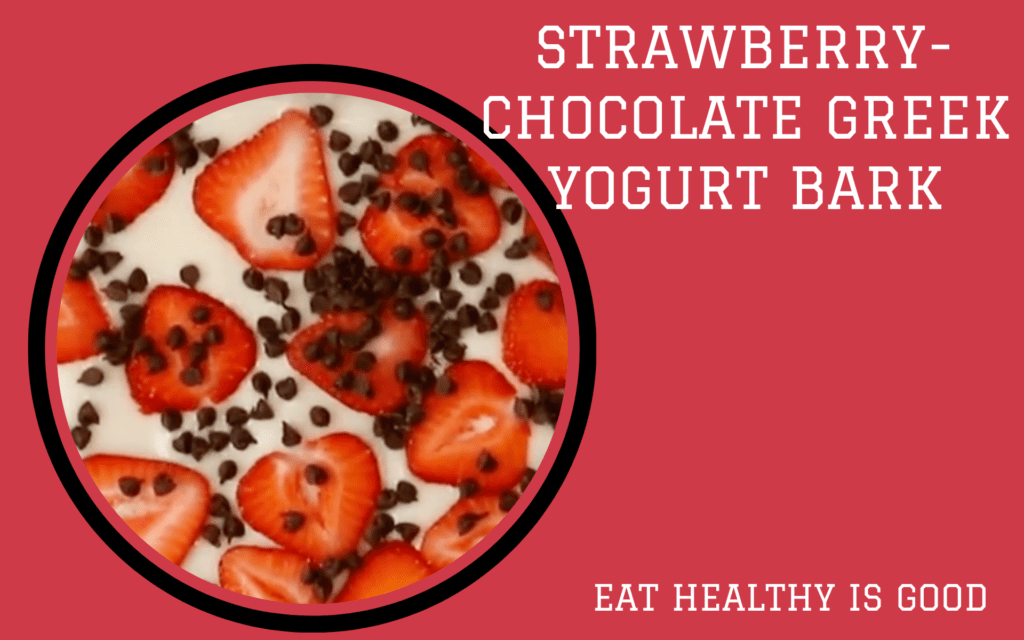
Greek yogurt is studded with fresh strawberries and chocolate chips before being frozen and broken into bits, similar to chocolate bark (but healthier!). This colorful snack is ideal for both children and adults.
Ingredients
- 3 cups whole-milk plain Greek yogurt
- 1/4 cup pure maple syrup or honey
- One teaspoon of vanilla extract
- One 1/2 cup sliced strawberries
- 1/4 cup mini chocolate chips
Directions
- Line a large, rimmed baking sheet with parchment paper.
- Combine yogurt, maple syrup (or honey), and vanilla in a medium bowl. Form a 10-by-15-inch rectangle on the prepared baking sheet. Top with strawberries and chocolate chips.
- Freeze for at least three hours or until extremely firm. To serve, cut or break into 32 pieces.
Nutrition Facts (per serving)
- Calories: 34
- Fat: 1g
- Carbs: 4g
- Protein: 2g
- One cup of sliced strawberries: 13 g carbs, 53 calories.
- 100 g: 8 g carbs, 32 calories.
3. Cantaloupe
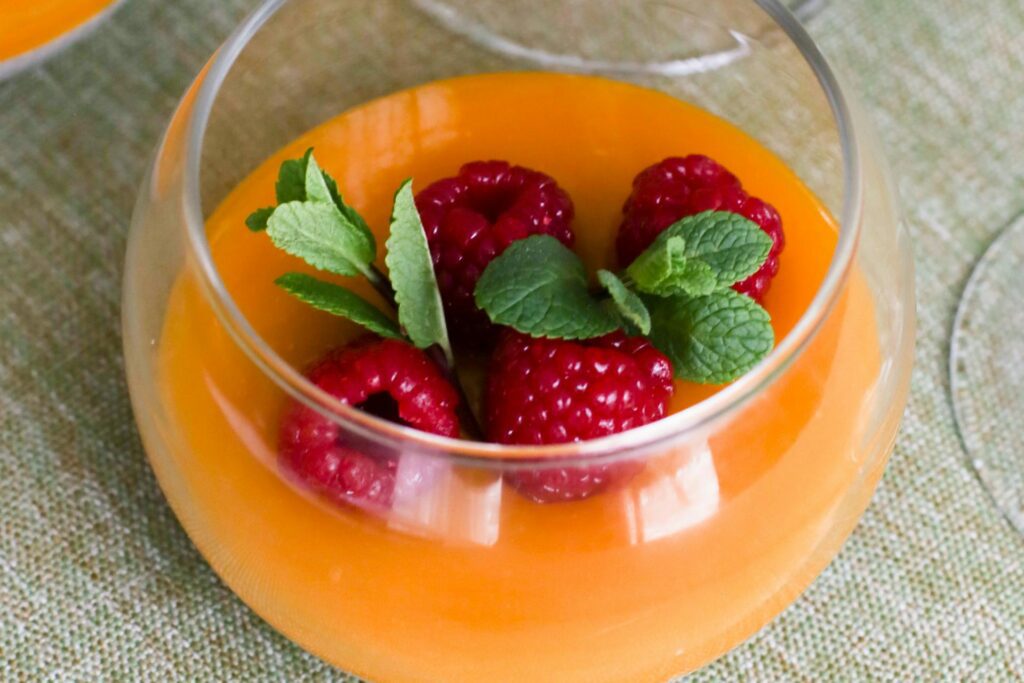
If you don’t currently consume it daily, cantaloupe is worth including in your diet. It is high in vitamin C and potassium, enhancing immune function and improving heart and muscle health. Eat cantaloupe slices or cubes, or mix them into your favorite smoothie.
- One cup cubed cantaloupe: 13 g carbs, 54 calories.
- 100 g: 8 g carbs, 34 calories.
4. Peach

Peaches taste like the essence of summer. They’re lovely and juicy; each medium peach has just 15 grams of carbohydrates. Peaches may be eaten alone or mixed into a rainbow fruit or leafy green salad for added sweetness.
- One medium peach: 14 g carbs, 58 calories.
- 100 g: 10 g carbs, 42 calories.
5. Raspberries
Do not underestimate these small berries. One cup of raspberries provides over 10 grams of fiber and two-thirds of your daily vitamin C needs. Their tanginess is ideal for adding flavor to your morning porridge or parfait.
Recipe to try: Cocoa-Chia Pudding with Raspberries
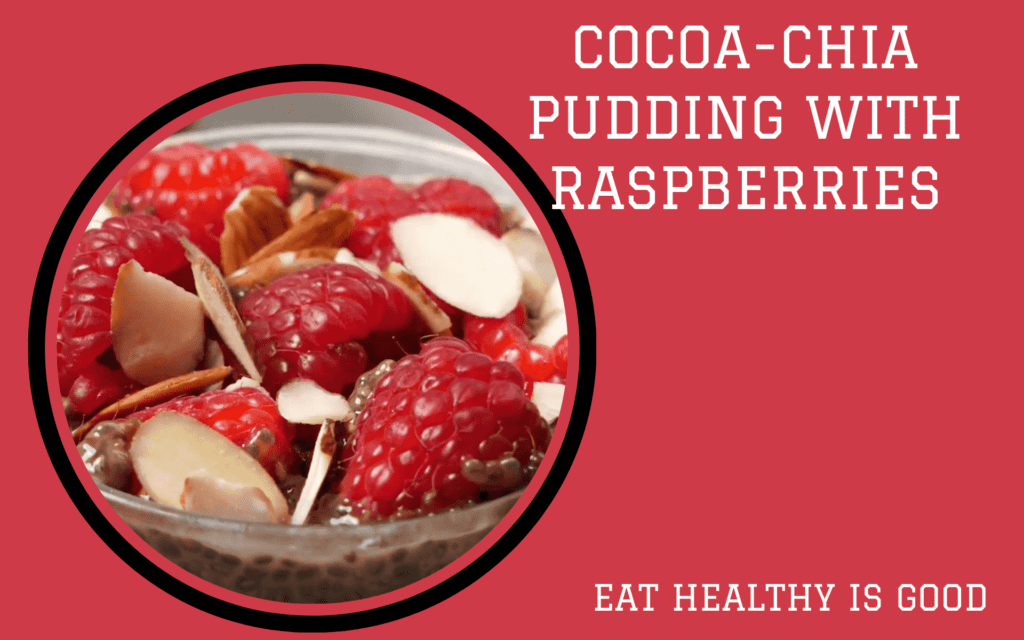
Enjoy chocolate for breakfast with this very nutritious chia pudding dish. The rich chocolate taste blends nicely with luscious raspberries for a delightful change from oatmeal in your daily routine.
Ingredients
- 1/2 cup unsweetened almond milk or other non-dairy milk
- Two tablespoons chia seeds
- Two teaspoons of pure maple syrup
- 1/2 teaspoon unsweetened cocoa powder
- 1/4 teaspoon vanilla extract
- 1/2 cup fresh raspberries, divided
- One tablespoon toasted sliced almonds, divided
Directions
- Combine almond milk (or other nondairy milk), chia seeds, maple syrup, chocolate powder, and vanilla in a small mixing basin. Cover and refrigerate for at least 8 hours or up to three days.
- When ready to serve, give a good stir. Spoon half of the pudding into a serving glass (or dish), then top with half of the raspberries and almonds. Add the remaining pudding and top with the raspberries and almonds.
Nutrition Facts (per serving)
- Calories: 222
- Fat: 11g
- Carbs: 28g
- Protein: 6g
- One cup of raspberries: 15 g carbs, 64 calories.
- 100 g: 12 grams carbs, 52 calories.
6. Orange
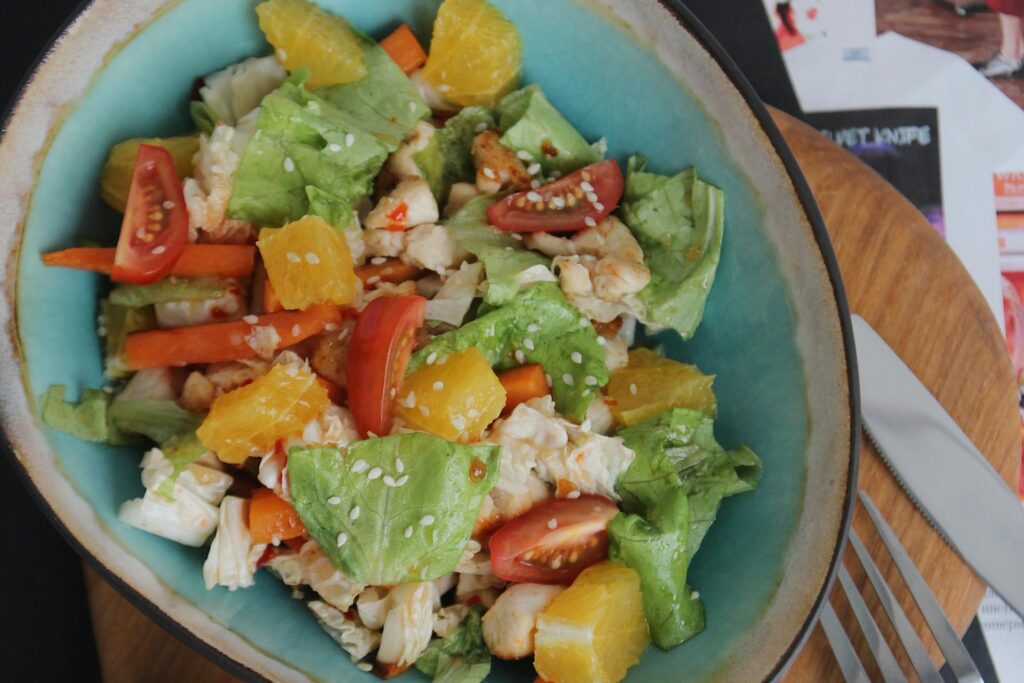
Oranges are a favorite food, and with good reason. They are widely available and accessible in most grocery stores, making them ideal for anyone managing their carb consumption, such as diabetics. A medium orange has 15 grams of carbohydrates and 70 milligrams of vitamin C (116% of your daily requirements).
- One medium orange: 15 g carbs, 62 calories.
- 100 g: 12 g carbs, 47 calories.
7. Blueberries
Blueberries have slightly more carbohydrates than raspberries, but they are equally healthful. They enhance heart health and good aging and can even aid with memory. They can be eaten alone or with desserts, salads, and other dishes.
Recipe to try: Purple Fruit Salad
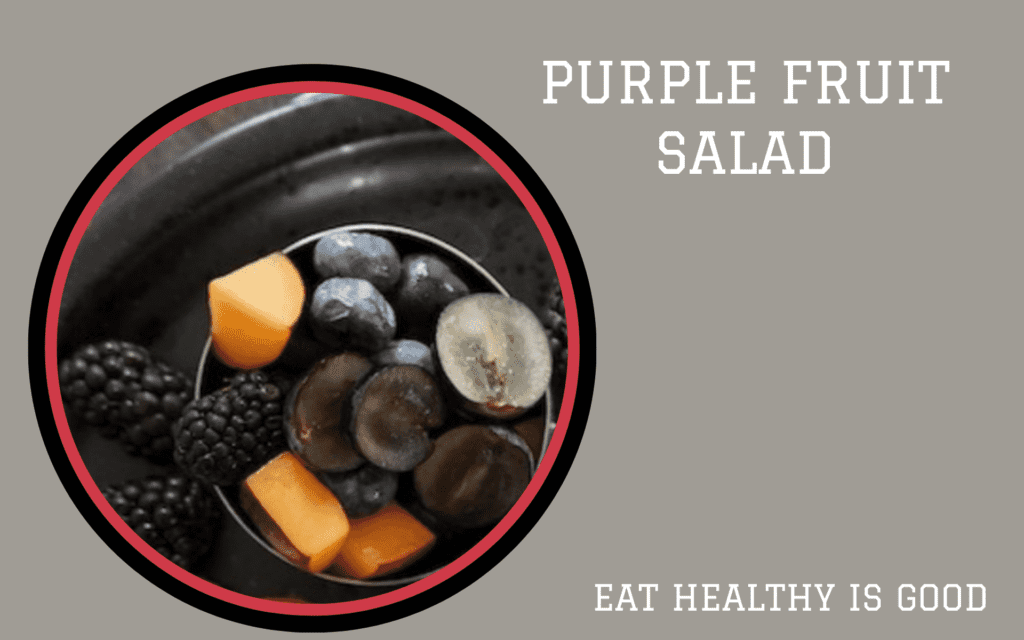
Ingredients
Lime Yogurt Dressing
- 1 ½ cups low-fat plain yogurt
- One tablespoon of lime zest
- One tablespoon of lime juice
- Four teaspoons granulated sugar
Purple Fruit Salad
- Two cups of halved seedless black grapes
- Two cups blueberries or halved blackberries
- Two cups diced plums (about 2)
- Two tablespoons chopped purple basil (optional)
- One cup of Lime Yogurt Dressing (optional)
Directions
- To make Lime Yogurt Dressing, combine the yogurt, zest, lime juice, and sugar in a medium bowl.
- To make Purple Fruit Salad, mix grapes, blueberries (or blackberries), plums, and basil (if using) in a big bowl. If preferred, serve with a yogurt dressing.
Nutrition Facts (per serving)
- Calories: 56
- Fat: 0g
- Carbs: 14g
- Protein: 1g
- One cup of blueberries: 21 g carbs, 84 calories.
- 100 g: 15 g carbs, 57 calories.
8. Pineapple
One cup of pineapple has 22 grams of carbohydrates. This tropical fruit contains minerals such as copper, which aids bone formation and strength, and plenty of vitamin C and fiber. Eat pineapple slices or cubes with salsa or grilled.
Recipe to try: Pineapple & Avocado Salad
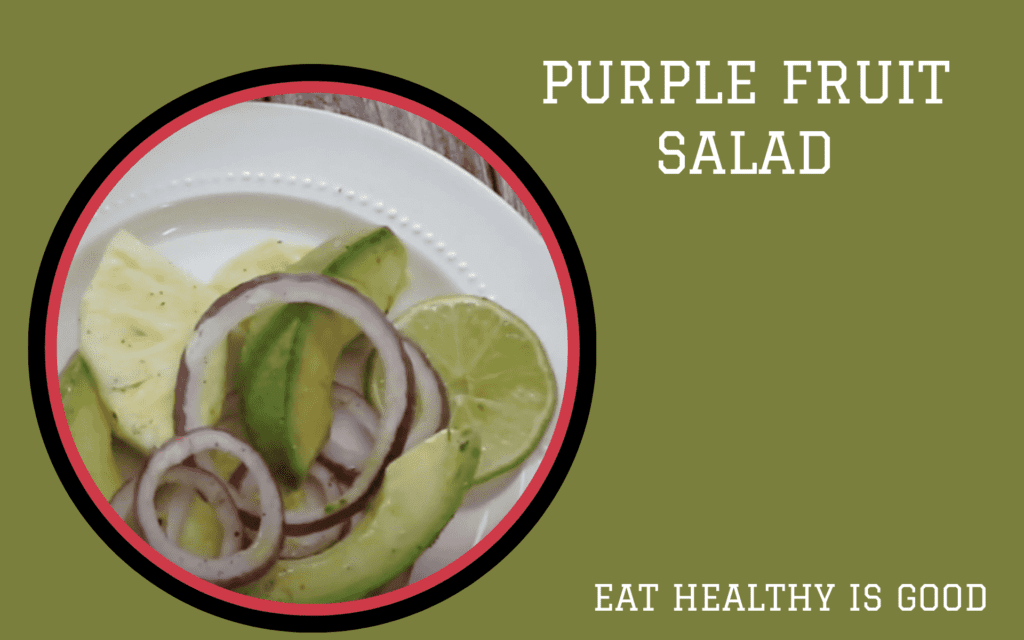
This delightful, uncomplicated Cuban salad dish captures tropical aromas. Serve with spicy chicken or pork, rice, and beans.
Ingredients
- ¼ cup thinly sliced red onion, separated into rings
- Ice water
- Two firm ripe avocados
- One medium fresh pineapple
- Three tablespoons extra-virgin olive oil
- One tablespoon of fresh lime juice
- ½ teaspoon kosher salt
- Freshly ground pepper to taste (optional)
Directions
- Soak the onion in a small dish of cold water for 15 minutes to soften the bite.
- Meanwhile, cut the avocados in half and then into slices. Peel the pineapple, then half it lengthwise into quarters. Remove the core and slice each quarter crosswise.
- In a small bowl, whisk together the oil and lime juice. Drain the onion and pat it dry. Place half of the avocado, pineapple, and onion on a serving platter, sprinkle with 1/4 teaspoon salt, and drizzle with half of the dressing. Repeat the layering. Garnish with pepper if desired.
Nutrition Facts (per serving)
- Calories: 186
- Fat: 13g
- Carbs: 20g
- Protein: 2g
- One cup cubed pineapple: 22 g carbs, 82 calories.
- 100 g: 13 g carbs, 50 calories.
9. Mango
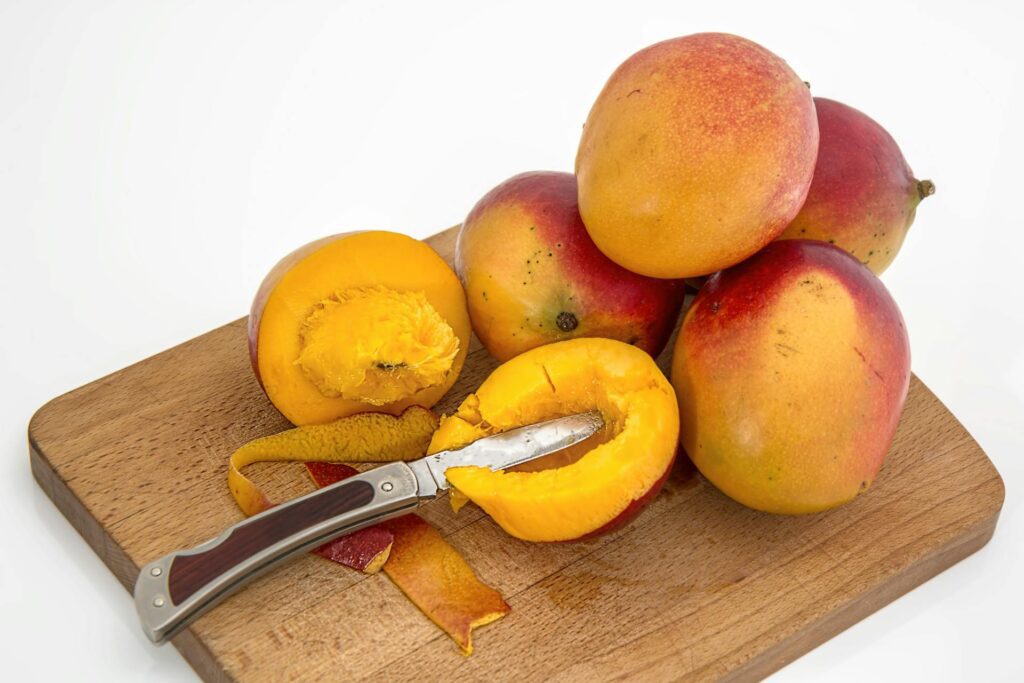
Mangoes have somewhat more carbohydrates (25 grams per cup) but are still very healthy. Mangoes are high in vitamin A, which can help keep your skin healthy and promote healthy aging.
- One cup chopped mango: 25 g carbs, 99 calories.
- 100 g: 15 g carbs, 60 calories.
10. Cherries

Cherry flavors range from sweet to sour, depending on the kind and maturity. They are so adaptable that they may be eaten independently or mixed into savory or sweet dishes. Cherries are high in nutrients, which may help manage blood pressure, keep your skin and immune system healthy, and provide other advantages.
- One cup of cherries: 25 g carbs, 97 calories.
- 100 g: 16 g carbs, 63 calories.
11. Apple
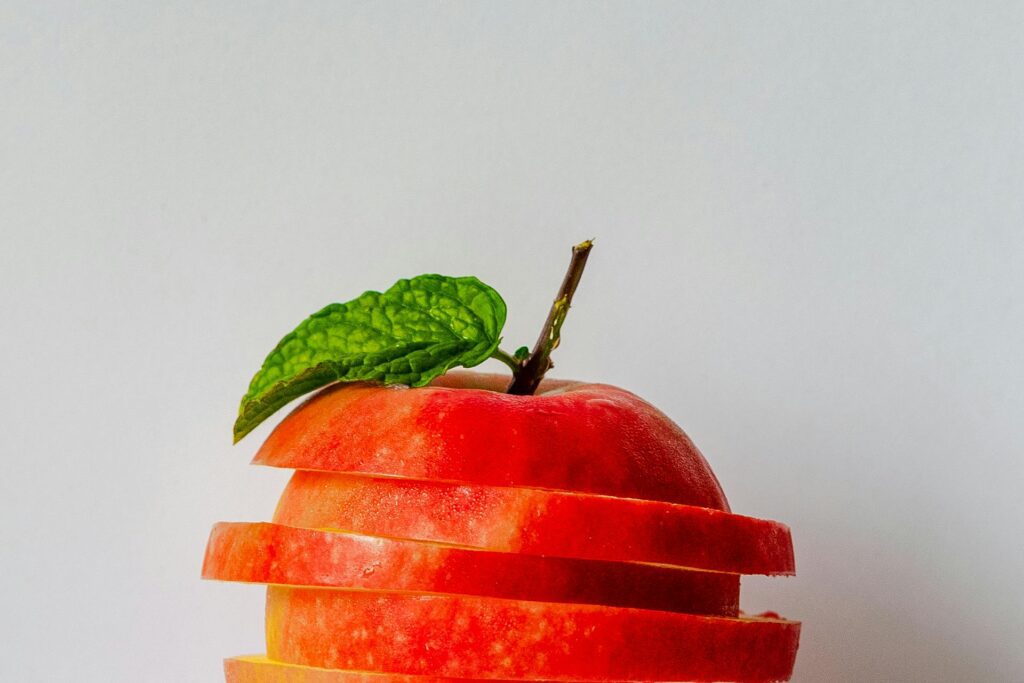
Despite being a high-carb fruit, apples are low-glycemic and include 4 grams of fiber. The apple fiber fills you up and delays glucose absorption, minimizing rapid increases, making apples an ideal healthy midday snack.
- One medium apple: 25 g carbs, 95 calories.
- 100 g: 14 g carbs, 52 calories.
12. Banana
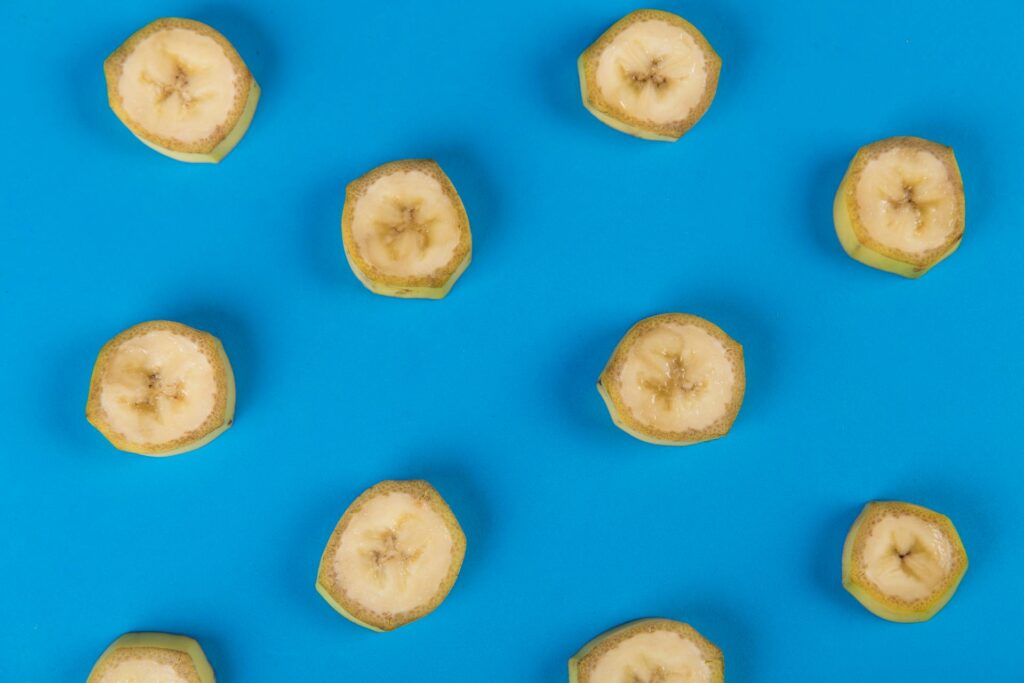
Despite their high carbohydrate content, bananas are a highly healthy fruit. Bananas include fiber, potassium, magnesium, phosphorus, vitamin B6, and vitamin C. Not to add, bananas are the best-selling fruit in the United States. People add them to their supermarket carts since they are affordable.
- One medium banana: 27 g carbs, 105 calories.
- 100 g: 23 g carbs, 89 calories.
13. Grapes
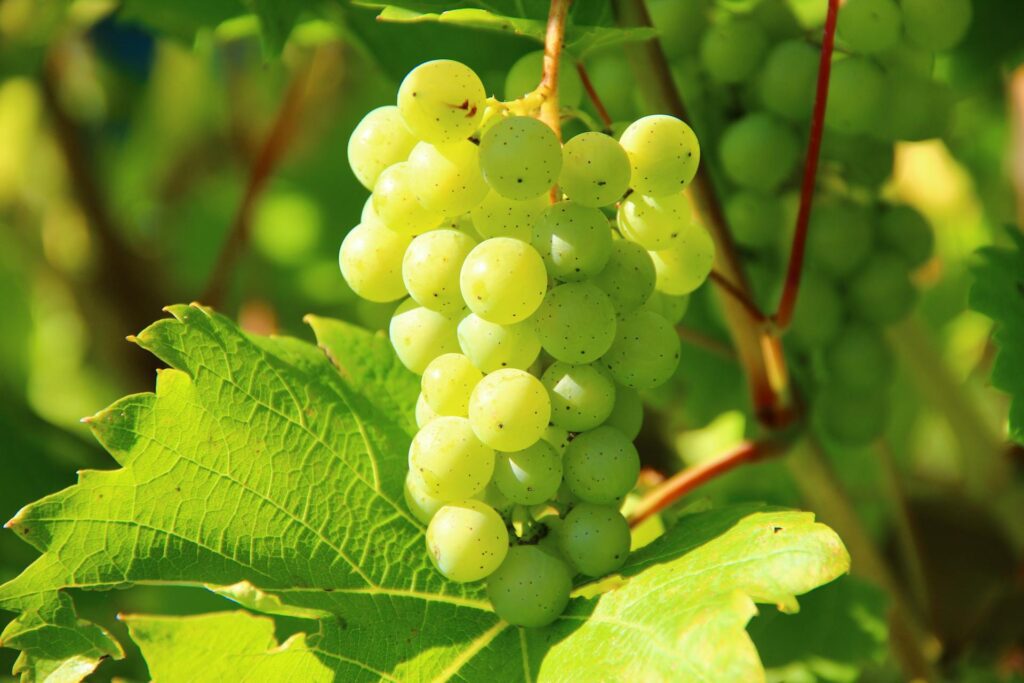
While grapes have the most carbs of any fruit on our list, they are rich in polyphenols, a kind of antioxidant that may combat free radicals that can harm bodily cells. Don’t allow their high carb level to prevent you from enjoying them; if you’re managing your carb consumption, eat them in smaller quantities to gain the possible heart and eye health advantages.
- One cup: 28 g carbs, 108 calories.
- 100 g: 18 g carbs, 69 calories.
The Bottom Line: Low Carb Fruits — Ranked Lowest to Highest Carbs
As a balanced diet, you should consume two cups of fruit daily. Diversity is critical to reaping the health advantages of each fruit. Certain colors have specific benefits—orange for vision and purple for brain health, for example—so select your favorite fruits but vary them. Fruit is an excellent source of carbohydrates. If you’re watching your carb intake, avoid fruit juice. One cup contains more than 25 grams of carbs and no helpful fiber.



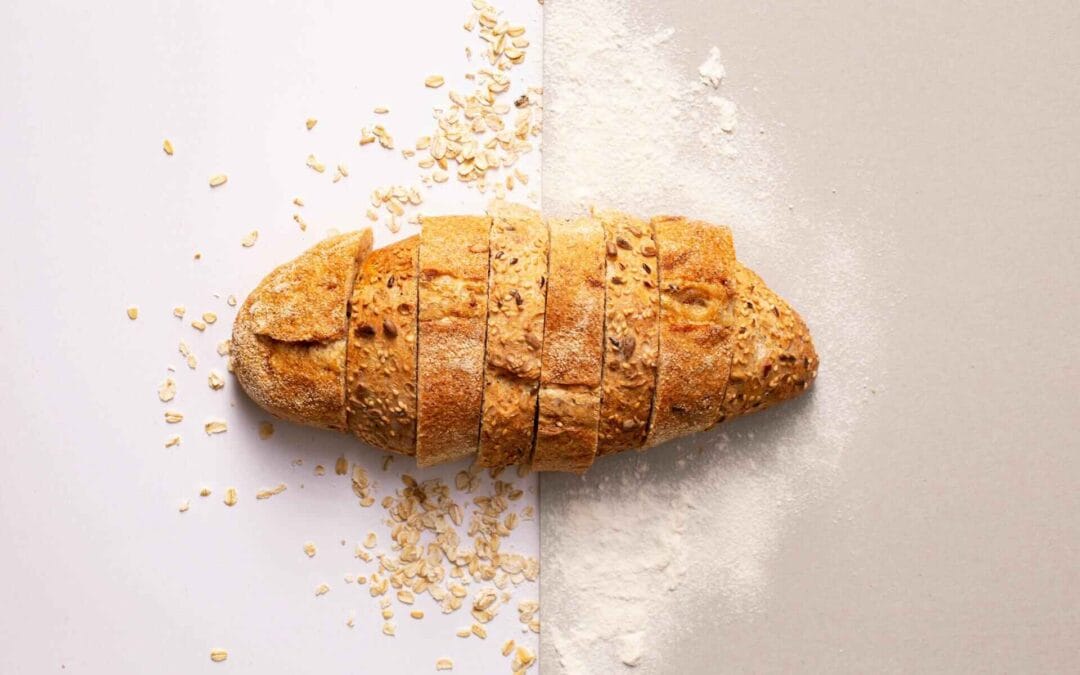
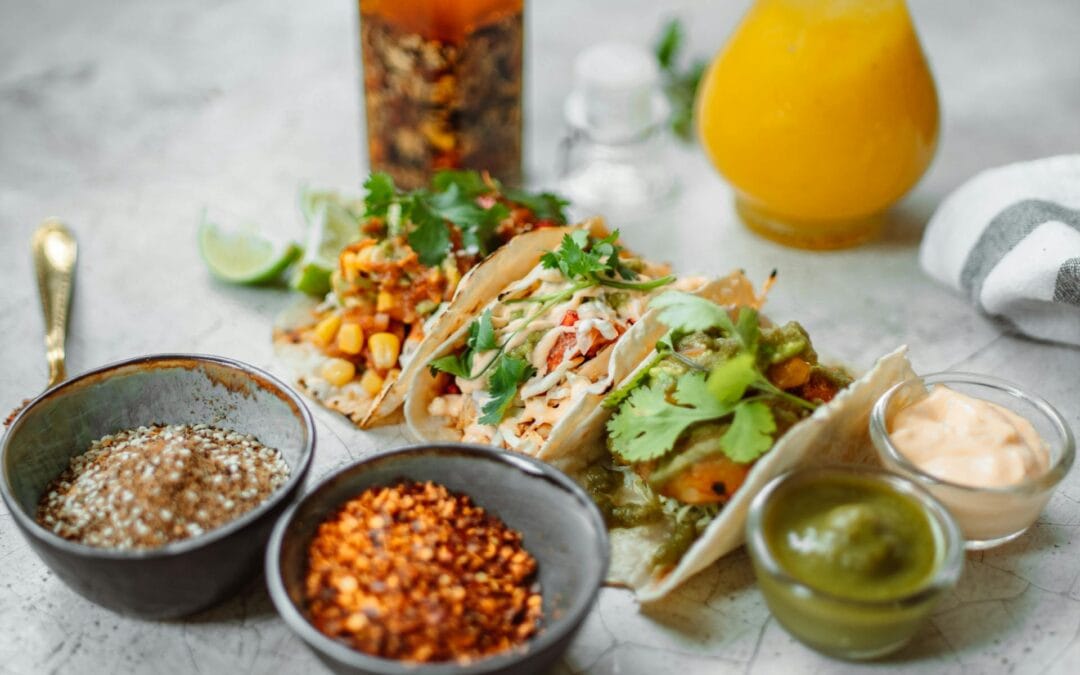

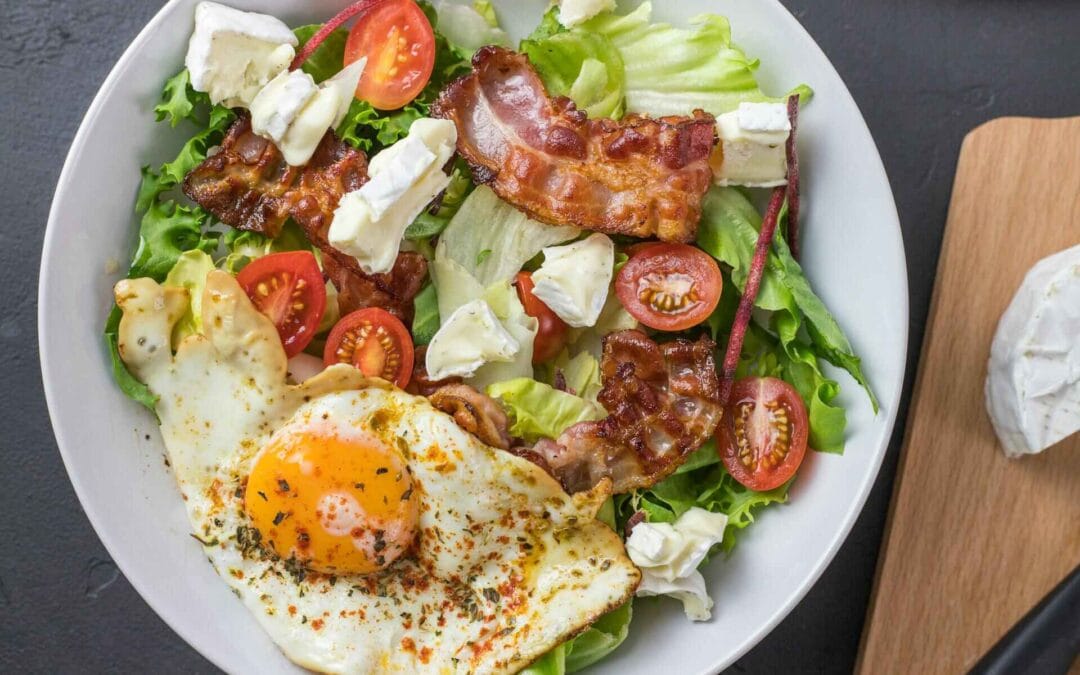
0 Comments